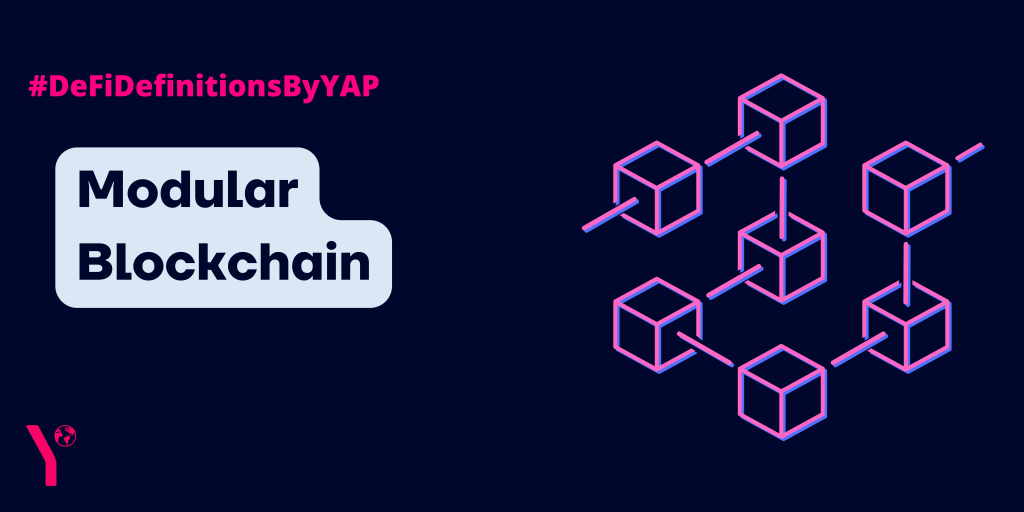A modular blockchain is a blockchain that is built using a modular architecture. It is made up of different parts or modules, each with a specific job like checking transactions, making sure everyone agrees on what happened or storing data. These parts are customisable and can be changed out for different ones that do the same job but in different ways.
Modularity makes blockchains more flexible and scalable by allowing developers to create and integrate different modules based on specific use cases, which can be easily upgraded and maintained. This makes modular blockchains ideal for enterprise applications that require customized solutions to meet specific needs.
In a modular blockchain architecture, modules can include components such as consensus mechanisms, smart contract languages, storage systems, and network protocols.
These modules can be developed independently and then integrated through standard interfaces, allowing for seamless interoperability and easier adoption. This can be used in a variety of industries, such as finance, supply chain management, and healthcare, where different use cases require different blockchain architectures.
